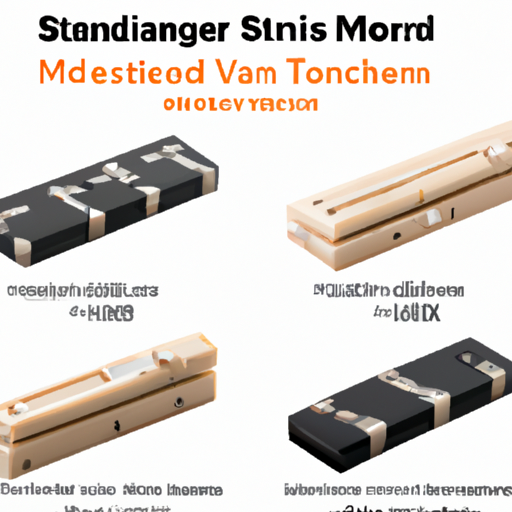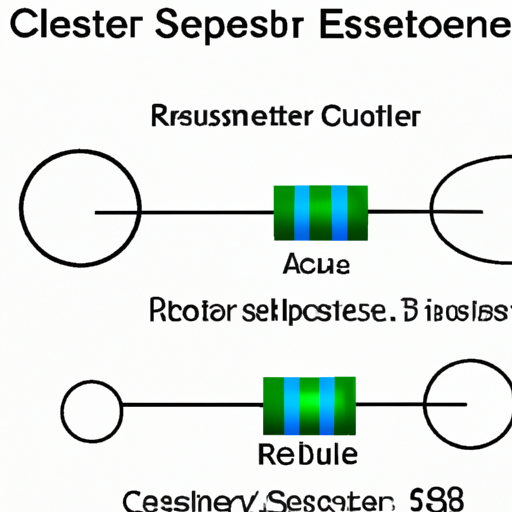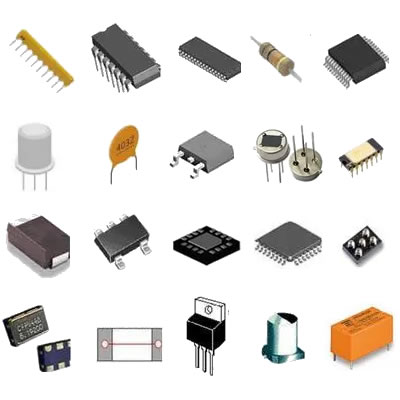What are the advantages of resistor value products?
What are the Advantages of Resistor Value Products?
I. Introduction
In the world of electronics, resistors play a crucial role in circuit design and functionality. Resistor value products refer to the various resistance values available in the market, which are essential for creating circuits that perform specific tasks. Understanding the advantages of these resistor value products is vital for engineers, hobbyists, and anyone involved in electronics. This article aims to explore the significance of resistor value products, their benefits, and their applications in modern technology.
II. Understanding Resistor Value Products
A. Explanation of Resistor Values
Resistors are components that limit the flow of electric current in a circuit. They are measured in ohms (Ω), which quantifies the resistance they provide. The resistance value is critical because it determines how much current will flow through the circuit for a given voltage, according to Ohm's Law (V = IR).
1. Resistance Measurement (Ohms)
The resistance measurement is fundamental to understanding how resistors function. Different applications require different resistance values, and the ability to select the appropriate resistor is essential for circuit performance.
2. Tolerance and its Importance
Tolerance refers to the allowable deviation from the specified resistance value. For example, a resistor with a value of 100 ohms and a tolerance of ±5% can have a resistance anywhere between 95 and 105 ohms. Understanding tolerance is crucial, especially in precision applications where even minor variations can affect performance.
B. Types of Resistors
Resistors come in various types, each serving different purposes:
1. Fixed Resistors
These resistors have a predetermined resistance value and are widely used in circuits where a constant resistance is required.
2. Variable Resistors
Variable resistors, such as potentiometers, allow users to adjust the resistance value, making them ideal for applications like volume controls in audio equipment.
3. Specialty Resistors
Specialty resistors include thermistors, photoresistors, and others designed for specific applications, such as temperature sensing or light detection.
C. Overview of Resistor Value Products in the Market
The market offers a vast array of resistor value products, catering to various needs in consumer electronics, industrial applications, and more. This diversity ensures that designers can find the right resistor for their specific requirements.
III. Advantages of Resistor Value Products
A. Precision and Accuracy
1. Importance of Accurate Resistance Values
In many electronic applications, precision is paramount. Accurate resistance values ensure that circuits function as intended, particularly in sensitive devices like medical equipment and communication systems.
2. Applications Requiring High Precision
High-precision resistors are essential in applications such as instrumentation, where even slight deviations can lead to significant errors in measurement.
B. Wide Range of Values
1. Availability of Standard and Custom Values
Resistor value products are available in a wide range of standard values, making it easy for designers to find the right component. Additionally, many manufacturers offer custom resistor values to meet specific design needs.
2. Flexibility in Circuit Design
The availability of various resistor values allows engineers to design circuits with greater flexibility, optimizing performance and efficiency.
C. Cost-Effectiveness
1. Economies of Scale in Production
The mass production of resistors leads to lower costs, making them affordable components in electronic designs. This cost-effectiveness is particularly beneficial for large-scale manufacturing.
2. Long-Term Savings in Circuit Design
Using the right resistor value can lead to improved circuit performance and longevity, resulting in long-term savings in maintenance and replacement costs.
D. Reliability and Stability
1. Performance Over Time
High-quality resistors maintain their resistance values over time, ensuring consistent performance in circuits. This reliability is crucial in applications where failure is not an option.
2. Environmental Factors and Their Impact
Resistors are designed to withstand various environmental factors, such as temperature and humidity, ensuring stable performance in diverse conditions.
E. Compatibility with Various Applications
1. Consumer Electronics
Resistor value products are integral to consumer electronics, from smartphones to home appliances, ensuring they function correctly and efficiently.
2. Industrial Applications
In industrial settings, resistors are used in control systems, automation, and monitoring equipment, highlighting their versatility and importance.
3. Automotive and Aerospace
In the automotive and aerospace industries, resistors play a critical role in safety and performance, making their reliability and precision even more vital.
F. Ease of Sourcing and Availability
1. Global Supply Chains
The global supply chain for electronic components ensures that resistor value products are readily available, allowing designers to source the components they need quickly.
2. Online and Local Distributors
With the rise of e-commerce, sourcing resistors has never been easier. Numerous online platforms and local distributors offer a wide selection of resistor value products.
IV. Practical Applications of Resistor Value Products
A. Circuit Design and Development
1. Role in Analog and Digital Circuits
Resistors are fundamental components in both analog and digital circuits, serving various functions such as voltage division, current limiting, and signal conditioning.
2. Importance in Signal Processing
In signal processing applications, resistors help filter and shape signals, ensuring that the output meets the desired specifications.
B. Prototyping and Testing
1. Use in Breadboarding
Resistors are commonly used in breadboarding, allowing engineers to test and modify circuit designs quickly before finalizing them.
2. Importance in R&D
In research and development, resistors are essential for experimenting with new circuit designs and validating concepts.
C. Educational Purposes
1. Teaching Electronics Concepts
Resistors are fundamental components in electronics education, helping students understand key concepts such as Ohm's Law and circuit behavior.
2. Hands-On Learning Experiences
Using resistors in practical experiments provides students with hands-on experience, reinforcing theoretical knowledge.
V. Challenges and Considerations
A. Selection Criteria for Resistor Value Products
1. Application-Specific Requirements
When selecting resistors, engineers must consider the specific requirements of their applications, including resistance value, tolerance, and power rating.
2. Environmental Considerations
Environmental factors, such as temperature and humidity, can impact resistor performance, making it essential to choose components that can withstand the intended conditions.
B. Potential Limitations
1. Availability of Specific Values
While many standard resistor values are readily available, some specific values may be harder to find, potentially complicating circuit design.
2. Impact of Tolerance on Performance
Tolerance can affect circuit performance, particularly in precision applications. Engineers must carefully consider the tolerance of resistors when designing circuits.
VI. Future Trends in Resistor Value Products
A. Innovations in Resistor Technology
1. Advances in Materials and Manufacturing
Ongoing advancements in materials and manufacturing processes are leading to the development of more efficient and reliable resistors, enhancing their performance in various applications.
2. Smart Resistors and IoT Applications
The rise of the Internet of Things (IoT) is driving innovation in resistor technology, with smart resistors capable of providing real-time data and feedback.
B. Sustainability and Environmental Impact
1. Eco-Friendly Manufacturing Practices
As the electronics industry moves towards sustainability, manufacturers are adopting eco-friendly practices in resistor production, reducing their environmental footprint.
2. Recycling and Disposal Considerations
The recycling and proper disposal of electronic components, including resistors, are becoming increasingly important as environmental concerns grow.
VII. Conclusion
In summary, resistor value products offer numerous advantages that are essential for modern electronics. Their precision, wide range of values, cost-effectiveness, reliability, and compatibility with various applications make them indispensable components in circuit design. As technology continues to evolve, the importance of resistor value products will only grow, paving the way for innovative applications and sustainable practices in the electronics industry. Understanding these advantages is crucial for anyone involved in electronics, from hobbyists to professional engineers.
VIII. References
- [1] "Understanding Resistors: A Comprehensive Guide," Electronics Tutorials.
- [2] "The Role of Resistors in Circuit Design," IEEE Spectrum.
- [3] "Advancements in Resistor Technology," Journal of Electronic Materials.
- [4] "Sustainability in Electronics Manufacturing," Environmental Science & Technology.
This blog post provides a thorough exploration of the advantages of resistor value products, highlighting their significance in various applications and the future trends shaping their development.





